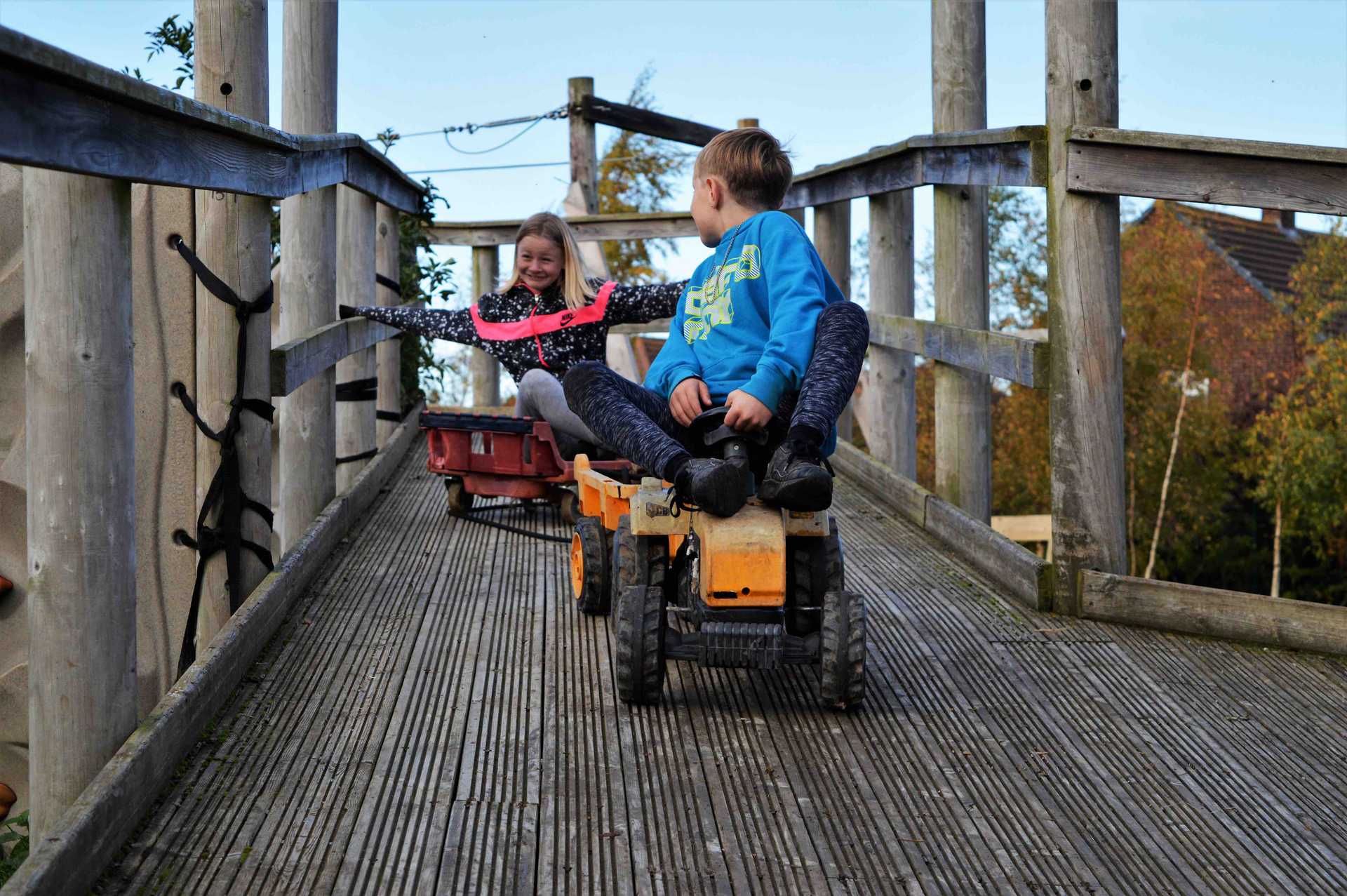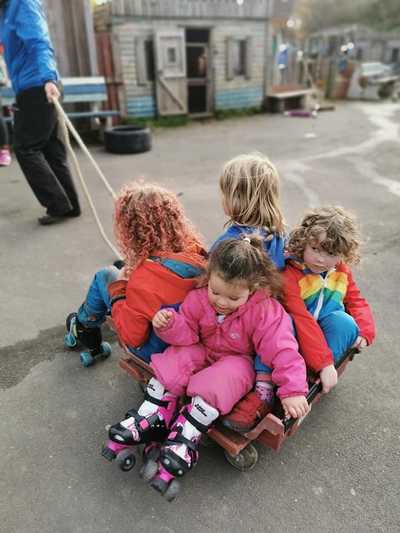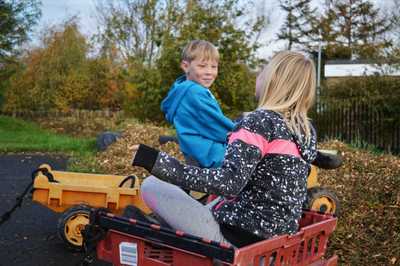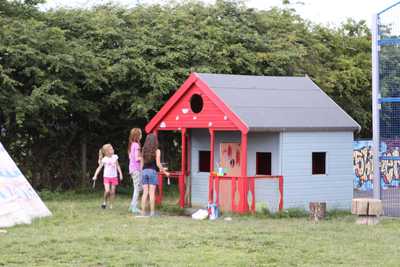Adventure play
Within its boundaries children can play freely, in their own way, in their own time
Harry Shier
What is Adventure Play?
The first Adventure Playground was developed in Emdrup near Copenhagen in 1943, the idea of landscape architect C.T. Sorensen. Initially called a 'junk playground', the emphasis was on providing scrap materials which the children could use to build their own play apparatus and dens. The idea was championed by Lady Allen of Hurtwood who introduced the concept to the UK after observing how children gravitated to playing on bomb sites after the Second World War.
Adventure Playrounds began to spring up in the late fifties, first in London and then in other parts of the UK. Harry Shier, in Adventure Playgrounds: An Introduction (1984), defines an adventure playground as "an area fenced off and set aside for children. Within its boundaries children can play freely, in their own way, in their own time. But what is special about an Adventure Playground is that here (and increasingly in contemporary urban society, only here) children can build and shape the environment according to their own creative vision".
Adventure playgrounds declined in use through the seventies due to a combination of health and safety concerns and spending cuts - only to partly re-emerge in 2008 when the Department for Children, Schools and Families announced funding to develop 30 staffed Adventure Playgrounds - one of which was our very own Shiremoor Adventure Playground!
Why is Play so important?
Play is essential to children's social, physical, intellectual, creative and emotional development. We believe that offering children the chance to freely choose self-directed activities supports them to become more resilent and has a beneficial effect on self-esteem. We believe children who have access to regular opportunities to play are happy children.
The Importance of Play
Play is an essential part of every child’s life and is vital for the enjoyment of childhood as well as social, emotional, intellectual and physical development.
The Charter for Children’s Play describes play as: ‘what children and young people do when they follow their own ideas and interests, in their own way, and for their own reasons.’ Play has also frequently been described as ‘what children and young people do when they are not being told what to do by adults’.
Research shows that play has many benefits for children, families and the wider community, as well as improving health and quality of life. Recent research suggests that children’s access to good play provision can:
- increase self-awareness, self-esteem, and self-respect
- improve and maintain physical and mental health
- provide opportunities to mix with other children
- increase confidence through developing new skills
- promote imagination, independence and creativity
- offer opportunities for children of all abilities and backgrounds to play together
- provide opportunities for developing social skills and learning
- build resilience through risk taking, problem solving and dealing with new situations
- provide opportunities to learn about the environment and community
Evidence shows wider benefits of play provision for families and communities:
- parents can feel more secure knowing that their children are happy, safe and enjoying themselves
- families benefit from healthier, happier children
- buildings and facilities used by play services are frequently seen as a focal point for communities
- it offers opportunities for social interaction for the wider community and supports the development of a greater sense of community spirit, promoting social cohesion
- public outside spaces have an important role in the everyday lives of children and young people, especially as a place for meeting friends
- parks and other green spaces are popular with adults taking young children out to play and for older children and young people to spend time together
Children's right to play is a human right
The United Nations has recognised the importance of children’s play and declared it a right that all children should have, by incorporating it in the UN Convention of the Rights of the Child, which the UK government ratified almost 30 years ago. On 1 February 2013 the United Nations Committee on the Rights of the Child adopted a General Comment that clarifies for governments worldwide the meaning and importance of Article 31 of the Convention on the Rights of the Child.
Delivering Training in Play - 2024 Case Study
Feedback from staff member at Children North East
"I enjoyed looking at Playwork as part of my work/role. This has given me many more ideas and understanding around Playwork and the importance of providing such opportunities."
Feedback from an OPAL staff member
"I found the platform easy to navigate and lots of resources were readily available to support each module. It was also good to be able to contact the mentor for support if needed. The content was useful for my role as a play mentor and provoked some deeper thinking around certain aspects. It helped develop and further my understanding of play and the playwork principles and how this looks as well as becoming more confident with theory. The theory and subject knowledge will help me have a deeper understanding and support my delivery of CPD training sessions to school staff."
Feedback from a school staff member
"I now understand the play cycle and how it works, it's something I have really enjoyed reading about and found it very interesting. I have also gained experience in carrying out dynamic risk benefit assessments and what areas need to be observed more closely to keep the children safe as they play. I really enjoy the outdoors and this has helped me to be creative, to develop new ideas and use any space available for activities. I have learned about the play types and principles within my role and feel it is now embedded in my knowledge so I can help support eh children within their play. I enjoy the responsibility of the outdoor setting and observing the children play, using the range of play types available. I use my knowledge from the playwork course to now support other membes of staff and to help make clear what our expectations are within the role."



